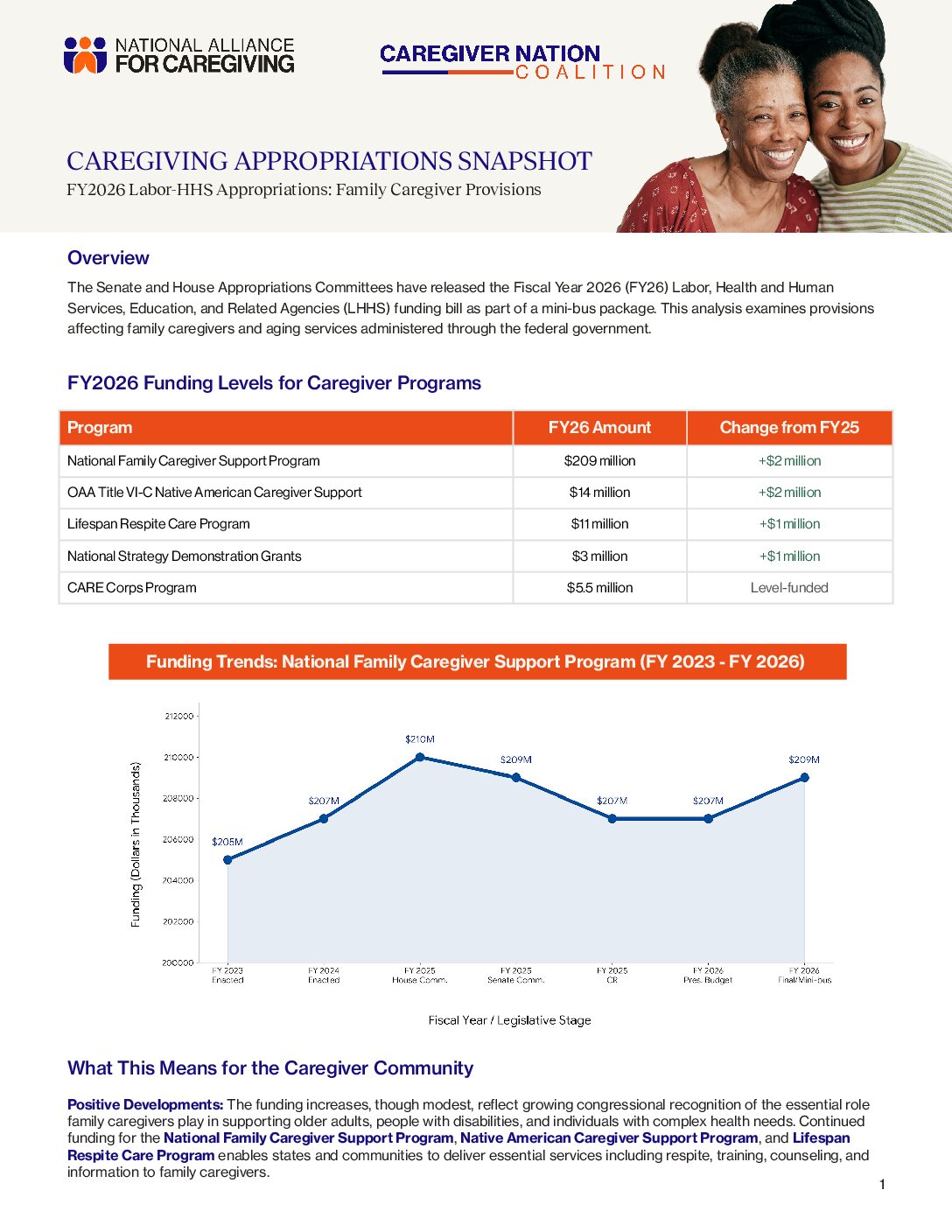Federal Funding Tracker
The goal of this resource is to enable family caregiver advocates to track and understand both historic and proposed investments in discretionary programs that support caregivers. Both funding allocations and programmatic overview information are reflected in this tool. The tracker will be updated as appropriations decisions are made each year.
About the Federal Budget Process
The annual federal budgeting cycle is a complicated process that entails numerous steps, timelines, and opportunities for input from various government and non-governmental stakeholders. For all federally funded programs and agencies that are not “mandatorily” funded by laws (i.e., Medicare, Medicaid, Social Security, and several other earned benefit programs), Congress, the administration, and agency policymakers, along with advocates, all have important roles in determining final funding—or appropriations—levels for “discretionary” federal programs and priorities.
The annual federal budget and appropriations cycle refers to the series of actions, activities, and decisions that Congress and the administration engage in to finalize yearly funding allotments for both defense and non-defense discretionary programs.
Key components in the federal budget cycle include the president’s budget proposal to Congress outlining administration funding requests and priorities for discretionary programs; Congressional budget and budget reconciliation proposals intended to establish overall funding levels and major policy updates affecting overall outlays; and a House and Senate Appropriations Committee process whereby lawmakers debate and determine line-item programmatic allocations for all discretionarily funded federal programs.
This overall process is supposed to be completed by September 30 each year before the start of the subsequent fiscal year on October 1. Unfortunately, the budget and appropriations cycle is increasingly complicated and often mired in partisan and political disagreements that delay timely completion. However, annual federal funding debates provide an important opportunity for advocates to educate and influence critical federal funding priorities.

